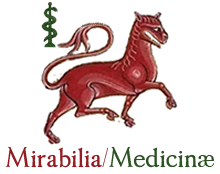Renata Palandri Sigolo SELL, Luis Fernando Bernardi JUNQUEIRA
The Heart’s Emptiness XĪN XŪ 心虛: interpretations about the book of Chinese medicine HUÁNG DÌ NÈI JĪNG LÍNG SHŪ 黃帝內經靈樞
O Vazio do Coração XĪN XŪ 心虛: interpretações sobre o livro de medicina chinesa HUÁNG DÌ NÈI JĪNG LÍNG SHŪ 黃帝內經靈樞
Published in I UNESC Seminar of Medical Humanities
Keywords: Chinese Medicine – History of Ancient China – Huang Di Nei Jing – Daoism.
PDF download:
This article is a study about the concept of Heart XĪN 心 in the book of Chinese medicine HUÁNG DÌ NÈI JĪNG LÍNG SHŪ 黃帝內經靈樞, which plays a very important role in Chinese medicine history from more than two thousand years until today. Available evidence suggests that at the basis of LÍNG SHŪ 靈樞 is a layer of texts written during the end of the Warring States period (475-221 B.C), through Qin dynasty (221-206 B.C) and the beginning of Western Han dynasty (206 B.C – 9 A.C). In LÍNG SHŪ chapter 8, the Heart is presented as Emptiness XŪ 虚, empty as Heaven TIĀN 天 and, thereby, the residence of the Spirits SHÉN 神 and connection between us and nature. The Heart is Empty because it is able to remain free from attachment and aversion to any experience, phenomenon or living being. The notion of Heart’s Emptiness XĪN XŪ 心虛 was written under the influence of Daoists texts such as LǍOZǏ 老子 and ZHŪANGZǏ 莊子, thus we can comprehend the strong relation between Chinese medicine and several another aspects of Chinese culture.






















































































